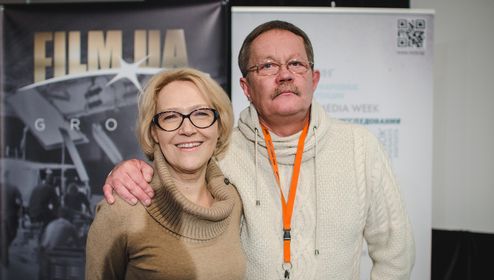
January 29 Victoria Bodnar and Sergey Bukovsky held a workshop within Skill Bill Pro. We talked about nonfiction films and prepared for you the outline of the workshop:
FILM.UA Group
22, Mykoly Zakrevskoho str., Kyiv, 02232, Ukraine
tеl.: 0 800 308 028, +380 44 501-39-71 fax: +380 44 546-68-97 e-mail: info@film.ua
Developed by Argentum IT Lab
